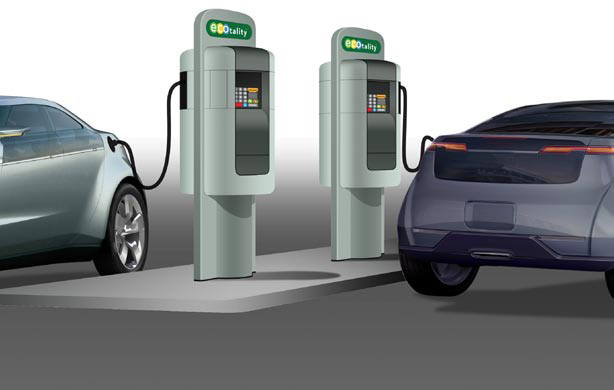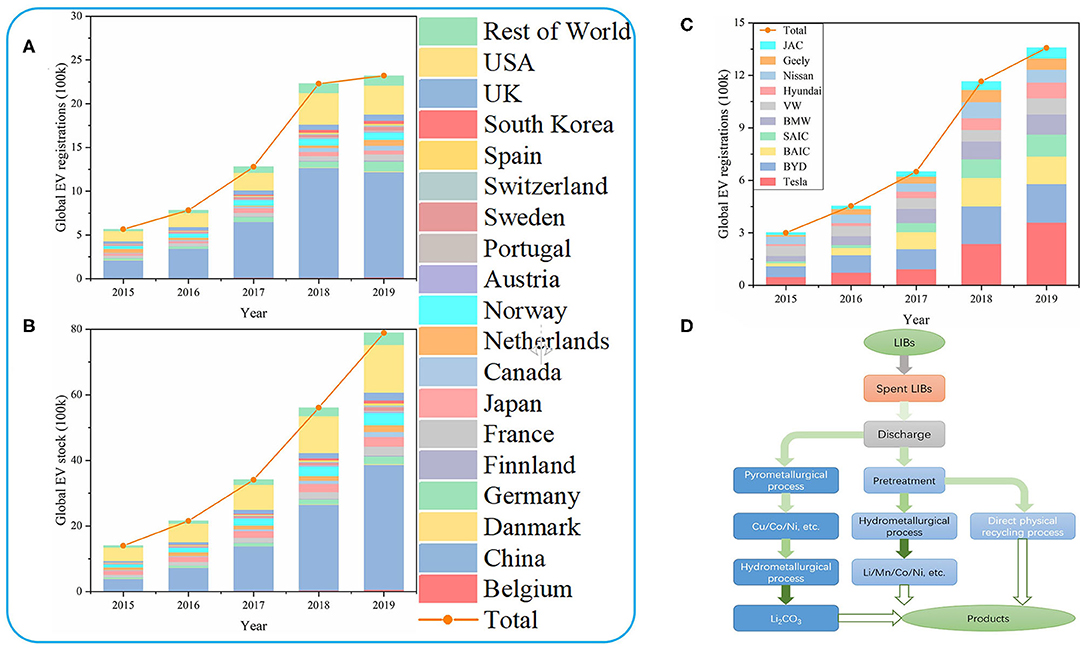The world is undergoing a significant shift towards sustainable transportation, and electric vehicles (EVs) are at the forefront of this revolution. As more countries and consumers embrace EVs as a cleaner alternative to traditional gasoline-powered cars, the demand for efficient and reliable EV batteries has skyrocketed.
In this article, we will explore the growing popularity of EVs, delve into the importance of battery technology in these vehicles, and analyze how battery range and performance affect consumer buying decisions.
Exploring the Growing Popularity of Electric Vehicles (EVs)
Electric vehicles (EVs) have become increasingly popular due to their numerous advantages over conventional cars. With zero tailpipe emissions, EVs contribute to reducing air pollution and combating climate change. They also offer lower operating costs and provide a smoother driving experience compared to traditional fossil-fueled vehicles.
In addition to their environmental benefits, EVs save owners money by charging at a fraction of the cost of gasoline or diesel fuel. The instant torque provided by electric motors ensures quick acceleration and responsive handling, making for an enjoyable ride.
Furthermore, advancements in battery efficiency and the expansion of charging infrastructure networks address concerns about range anxiety.
Governments worldwide are implementing policies such as tax credits and subsidies to incentivize the adoption of EVs. As these initiatives become more widespread, the popularity of electric vehicles is expected to continue rising.
Discussing the Importance of Battery Technology in EVs
The battery technology in electric vehicles (EVs) is crucial for their performance and driving range. As consumers seek longer distances without compromising power, advancements in battery technology play a vital role in meeting these expectations.
Improvements in battery range have addressed initial concerns about limited travel distances, while high-power outputs have enabled comparable or superior performance to traditional gasoline-powered vehicles. Additionally, improved battery efficiency reduces energy consumption and lowers operational costs for EV owners.
Continued innovations in battery technology will further enhance driving ranges, performance capabilities, efficiency, and charging infrastructure, solidifying EVs as a sustainable transportation solution for the future.
Analyzing how battery range and performance affect consumer buying decisions
Battery range and performance have a significant impact on consumers’ decision-making process when considering the purchase of an electric vehicle (EV). A longer range provides flexibility for travel plans without worrying about running out of charge, while superior performance ensures quick acceleration and effortless handling on various terrains.
Understanding these considerations helps investors and potential buyers make informed choices. Exploring different types of EV batteries is essential, as each offers unique characteristics and performance attributes that cater to individual needs and preferences.
Overview of Different Types of EV Batteries
Lithium-ion batteries are the most prevalent type of battery used in electric vehicles today. They offer high energy density, allowing for longer driving ranges, and can be recharged numerous times without significant capacity degradation.
Solid-state batteries are an emerging technology that aims to overcome some limitations of lithium-ion batteries. These batteries utilize a solid electrolyte instead of a liquid one, offering potentially higher energy density and improved safety features.
In summary, lithium-ion batteries currently dominate the market, but solid-state batteries show promise as an innovative alternative with their potential for increased energy density and enhanced safety.
Explaining the Role of Energy Density and Power Density in Battery Performance
Battery performance in electric vehicles (EVs) is evaluated based on two key metrics: energy density and power density.
Energy Density: This refers to how much energy a battery can store per unit volume or weight. Higher energy density means longer driving ranges, as more energy is stored within the same physical space or weight limit.
Power Density: Power density represents how quickly a battery can deliver the required amount of energy. Higher power density enables fast acceleration and sustained performance during high-demand situations.
Understanding these concepts helps investors and consumers effectively assess and compare different EV battery options. By considering both energy and power density, stakeholders can make informed decisions about which batteries best suit their needs.
Comparing the Pros and Cons of Various Battery Chemistries
When it comes to battery chemistries, it is crucial to consider the pros and cons associated with each type. Two commonly used battery chemistries are nickel-cadmium (NiCd) and nickel-metal hydride (NiMH).
Nickel-cadmium batteries were once popular but have gradually been phased out due to concerns over cadmium’s environmental impact. Despite this, they still find application in specific industries thanks to their robustness and ability to withstand extreme temperatures.
However, their limited energy density and memory effect, where the battery “remembers” its shorter runtime if not fully discharged before recharging, are significant drawbacks.
On the other hand, nickel-metal hydride batteries offer a balance between energy density, power density, and cost-effectiveness. They have found widespread use in electric vehicles (EVs), providing a reliable power source for these vehicles.
However, their adoption has diminished with the rise of lithium-ion batteries due to lower energy density and a tendency to self-discharge over time.
To summarize:
| Battery Chemistry | Pros | Cons |
|---|---|---|
| Nickel-Cadmium (NiCd) | Robustness; Ability to withstand extreme temperatures | Environmental concerns; Limited energy density; Memory effect |
| Nickel-Metal Hydride | Balance between energy density, power density, and cost | Lower energy density compared to lithium-ion batteries; Self-discharge over time |
By examining these different battery chemistries, investors can identify trends in the market and make informed decisions based on evolving consumer preferences. It is essential for companies in the EV battery market to stay up-to-date with advancements in battery technology as they compete for dominance in this rapidly growing industry.
Now that we have explored the pros and cons of various battery chemistries, let’s delve into some of the industry’s leading players who have made significant strides in the development and production of EV batteries.
Tesla: The Pioneer
Tesla, a leading electric vehicle (EV) manufacturer, has revolutionized the industry with its cutting-edge EV batteries. Through continuous research and development, Tesla has created high-performing batteries that offer exceptional range capabilities and fast charging speeds.
One standout feature of their battery technology is the Gigafactories, massive production facilities dedicated to manufacturing batteries at an unprecedented scale. These facilities contribute to reducing costs and increasing overall production efficiency.
Tesla’s commitment to delivering high-quality battery performance has garnered immense customer satisfaction and positive feedback. Their pioneering efforts in developing advanced EV batteries have solidified Tesla’s position as a pioneer in the industry.
| Heading | Content |
|---|---|
| A. Tesla: The Pioneer | |
| Key Points | – Tesla developed cutting-edge EV batteries – Gigafactories contribute to large-scale battery production – Customer satisfaction with Tesla’s batteries |
| Language Style | Conversational, engaging, and easy to understand |
| Grammar & Punctuation | Correct usage of grammar, punctuation, and spelling |
| Word Choice | Varied language to avoid repetition |
| Tone | Consistent throughout the paragraph |
| Format | Formatted in shorter paragraphs for conciseness |
| Active Voice | Utilized throughout the paragraph for strength and clarity |
LG Energy Solution: Capturing Market Share
LG Energy Solution has emerged as a dominant player in the global EV battery market, capturing a 14% market share. Their strong presence is a testament to their technological prowess and commitment to high-performance batteries.
With strategic partnerships and a focus on sustainability, LG Energy Solution solidifies its position as one of the industry leaders.
[lyte id=’Zofx59CLb4A’]






